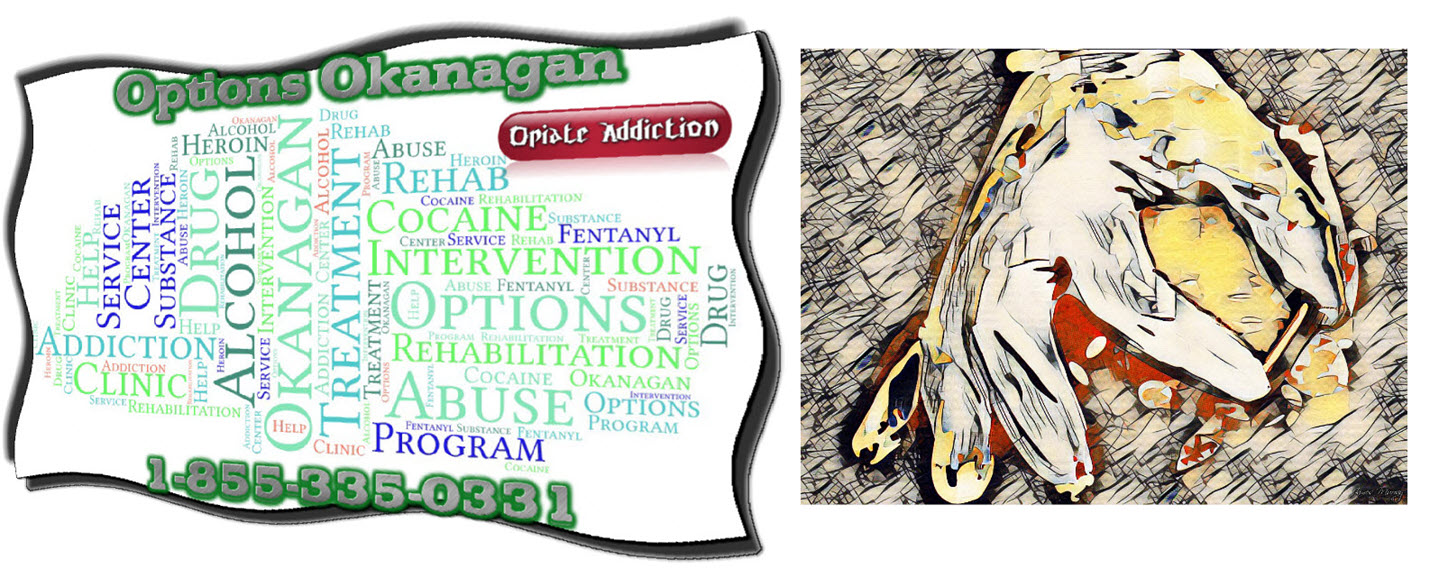The addiction recovery road and letting go of shame and quilt. Alcohol and opiate addiction rehab treatment clinics in British Columbia and Alberta – Options Okanagan Treatment Centers in Kelowna and Salmon Arm (Shuswap), British Columbia treating drug, opiate, heroin and alcohol addiction and recovery.
Opiate Rehabs In Alberta And BC
To recover from addiction, and to heal an addicted person they must be willing to go beyond shame and guilt. Hiding shame and embarrassment only keeps the person trapped in a cycle of alcoholism or substance abuse. One of the most difficult parts of starting a life of recovery and healing from addiction is fixing the mistakes made and the damage and pain they cause while using drugs or alcohol. Full understanding of the past will be important, but it can also lead people in rebuilding their lives from addiction with a burning shame that will feel.
Many addiction counselors and therapists will argue from experience that if left unchecked, the shame of addiction will haunt most people for the rest of their lives. Letting go of that shame is an important step towards recovery, and holding on to that shame will erode the self-esteem that goes into the hard work of recovery and living a life that is drug-free.
Shame will be entrenched from within, reducing the individual’s self-esteem and sense of worthlessness. Shame will make the addicted think and even believe that things will never get better and change.
Counselors and therapists are beginning to address this shame by helping people understand the difference between shame and guilt, two powerful emotions for people in early recovery from addiction. Shame is very different from guilt. Guilt will say something like “I did something really bad!” while Shame will say “I’m evil!” Two very different thoughts about addiction.
When people cling to shame and the idea that they are bad, they cannot escape their drug use. If all addicted people think they are “bad” and not the people who make bad decisions or choices, then they remain trapped in a vicious cycle with no hope of stopping their addiction.
Unresolved shame can prevent people from coming to their senses and trap them in a mental breakdown, preventing them from continuing to recover. The key to getting rid of shame is understanding and addressing the main issues that lead to substance abuse. Since this is a complex process, it is necessary to enlist the help of a counselor or addiction therapist.
An important phase in letting go of shame is finding forgiveness for yourself and others who may have offended you.
Another way of expressing this comes from the publications of Alcoholics Anonymous and the 12-Step Program, which states that “resentment is the number one cause,” and when you hold shame, you must find a way to forgive and let go. When one is spiritual, there is a saying that “forgiveness is the ground where joy grows in one’s life.”
This may seem very simple, but it is a challenging and difficult step for many, especially when shame is actually passed down from generation to generation in families.
An individual needs to like themselves enough to stop owning the shame, and after that, they have to love their wrongdoers enough to forgive them for their trespasses too, and that is the key is forgiveness.
Forgiveness implies accepting that a person’s past behaviors were a mistake, not something that confirms what kind of person they are. It’s alright to acknowledge that a person has slipped up and to fix the mistake, however, it is never alright to think that they are a mistake. Forgiving oneself or others does not suggest making light of past behaviors, but instead moving on from it.
It’s sometimes easy to forgive and also impossible to forget, so people need to stop trying to hard to forget it. Instead, simply use this anger and resentment as a gauge or scale to see just exactly how loving, caring and forgiving they are of others whenever they have feelings of self-doubt, insecurity, shame or anger.
A person needs to reach out and connect with friends and others that have actually handled similar feelings can help when moving on really feels difficult or impossible. A person may really feel hopeless, however, they are never helpless, so pick up a phone and call somebody that has either been through it themselves, is presently going through it or somebody that is professionally accredited to help.
Options Okanagan Opiate and Alcohol Treatment Centers in Kelowna, Salmon Arm and Vancouver, British Columbia – Men and Women are recovering and healing from Alcohol and Drug Abuse at our treatment center here in the Okanagan right now.
Our unique and distinctive Opiate Drug and Alcohol treatment program allow men and women to come in from Calgary as well as Edmonton as we offer airport pickup.
Numerous clients come to us from Vancouver, Calgary, and Edmonton and other locations in Alberta and even other provinces for Opiate addiction treatment, heroin drug treatment, many other drug and alcohol addictions for rehabilitation because of the uniqueness of our treatment center.
Our (Kelowna ) Alcohol and Drug Treatment Program Location:
(Not Mailing Address) Contact Us – Web Page
For Mail Delivery :: Please contact each center for correct mailing addresses, also this location is the location of our residential treatment programs in Kelowna. Please call Toll Free 1-855-335-0331 to contact the treatment center you are going to for the address and directions.
Options Okanagan Drug and Alcohol Treatment Center
551 Sherrydale Crescent, Kelowna, British Columbia, V1V 2E6
Toll-Free Phone Number: 1-855-335-0331




